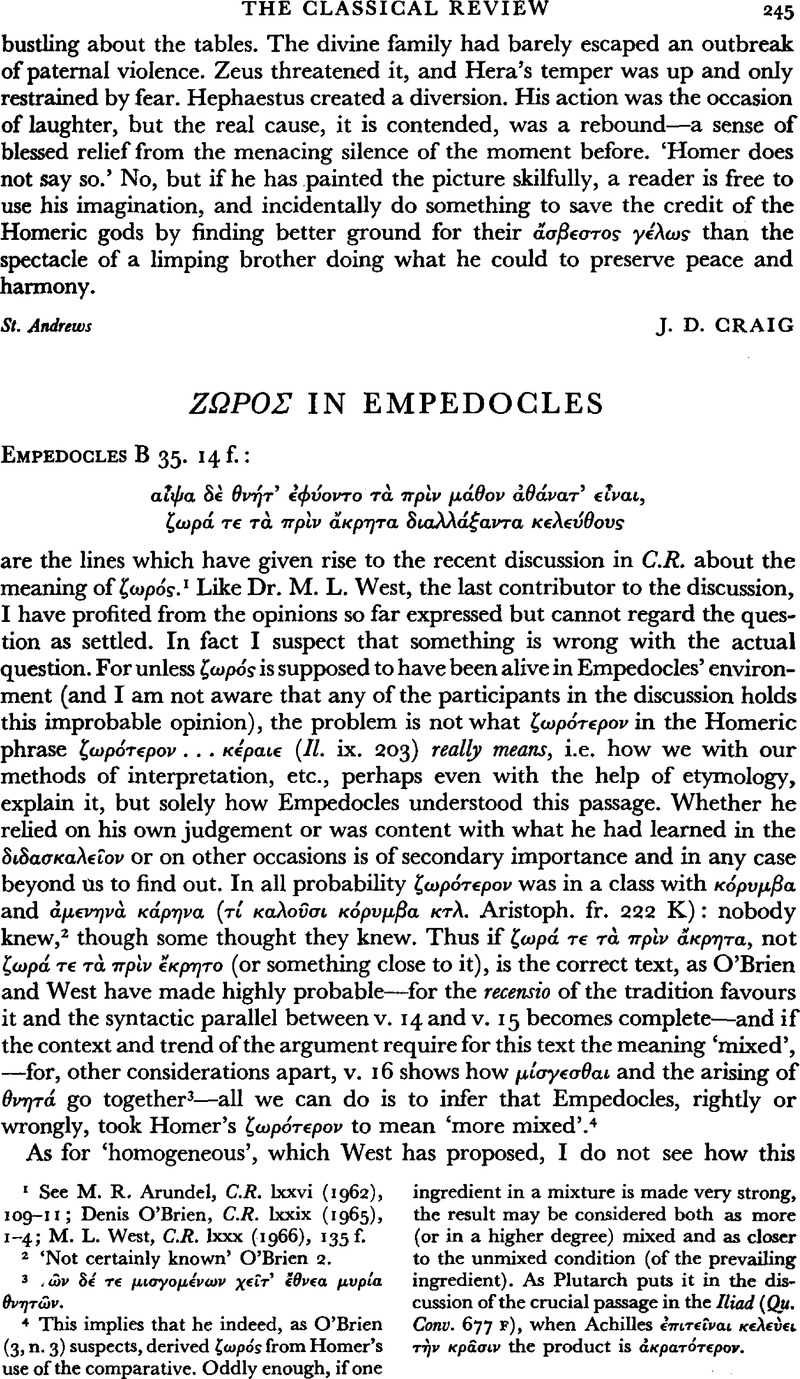No CrossRef data available.
Published online by Cambridge University Press: 27 February 2009

1 See Arundel, M. R., C.R. lxxvi (1962), 109–111Google Scholar; O'Brien, Denis, C.R. lxxix (1965), 1–4Google Scholar; West, M. L., C.R. lxxx (1966), 135 f.Google Scholar
2 ‘Not certainly known’ O'Brien 2.
3 ⋯ν δ⋯ τε μιογομ⋯νων χεῖτ' ἔθνεα μυρ⋯α θνητ⋯ν.
4 This implies that he indeed, as O'Brien (3, n. 3) suspects, derived ζωρ⋯ς from Homer's use of the comparative. Oddly enough, if one ingredient in a mixture is made very strong, the result may be considered both as more(or in a higher degree) mixed and as closer to the unmixed condition (of the prevailing ingredient). As Plutarch puts it in the dis-cussion of the crucial passage in the Iliad (Qu.Conv. 677 F), when Achilles ⋯πιτεῖναι κελεὺει τ⋯ν κρ⋯σιν the product is ⋯κρατ⋯τερον.